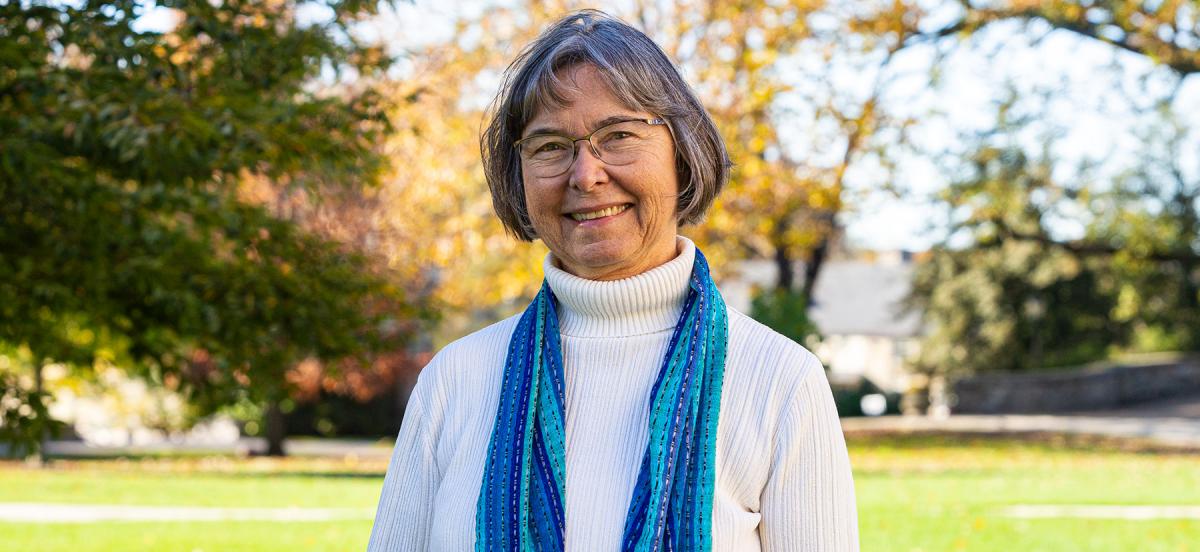Haverford Welcomes Paula Palmer as Friend in Residence

This semester's Friend in Residence, Paula Palmer, is a sociologist, writer, and activist for human rights, social justice, and environmental protection. Since 2012 she has traveled in Quaker ministry, working with Native and non-Native people to build relationships based on truth, respect, and justice. Photo by Patrick Montero.
Details
This semester the Quaker Affairs Office is welcoming Paula Palmer, an activist and a long-standing advocate for the rights of Indigenous peoples, to campus as this semester’s Friend in Residence.
It’s been a decade since the College’s Quaker Affairs Office first introduced its Friends in Residence program, and by inviting a uniquely accomplished Quaker to campus each semester, it has enlivened and educated the community through workshops, informal meetings, visits to the classroom, and other forms of public outreach.
“The goals of the Friend in Residence program is to bring experienced Quakers to campus as a resource to the community,” said Walter Sullivan, the director of Quaker Affairs. “It gives students and others in the community the opportunity to meet and get to know individuals who have lived a noteworthy life influenced by their Quaker convictions, and to showcase the diverse ways that the Quaker path can unfold.”
Following last spring’s residency by Sterling Duns and Caselli Jordan, a duo who promote activism through music under the moniker City Love, Paula Palmer, a Quaker with long-standing roots in nonprofits dedicated to righting communities’ relationships with Indigineous peoples, arrives on campus in November.
“Like many of the Friends in Residence before her, she brings a lifetime dedicated to living faithfully into a particular calling and an eagerness to share about that process with others,” said Sullivan.
Beginning Nov. 1, Palmer will host a week of lectures, discussions, and workshops across campus. She will tackle subjects ranging from her own personal experience with nonprofit work and spirituality to the Indigineous peoples advocacy that she has been undertaking most recently as a member of the Friends Peace Teams.
“Over these years we developed a variety of workshops and programs whose goals are to educate the American public about our history of genocide, colonization, and forced assimilation of Native peoples, and motivate them to build relationships between Native and non-Native peoples based on truth, respect, justice, and our shared humanity,” said Palmer.
Palmer’s life of advocacy work for Indigenous peoples first began in Costa Rica, where she lived for 20 years while publishing five books of oral history on the KekoLdi and Afro-Caribbean communities.
By working closely with the Quaker Affairs Office, Quaker and Special Collections, as well as meeting with Professor James Krippner’s class “Origins of the Global South,” Palmer’s discussions will introduce the community to the program of “Toward Right Relationship with Native Peoples.”
“I hope the talks and workshops will be challenging—not just more information to shelve, but motivation to assess how our institutions, including this one, are acknowledging the history of this land and the ongoing consequences for all of us, both Native and non-Native peoples,” she said.
The full schedule of events Palmer has planned for her stay on campus can be found on the Quaker Affairs Website.



